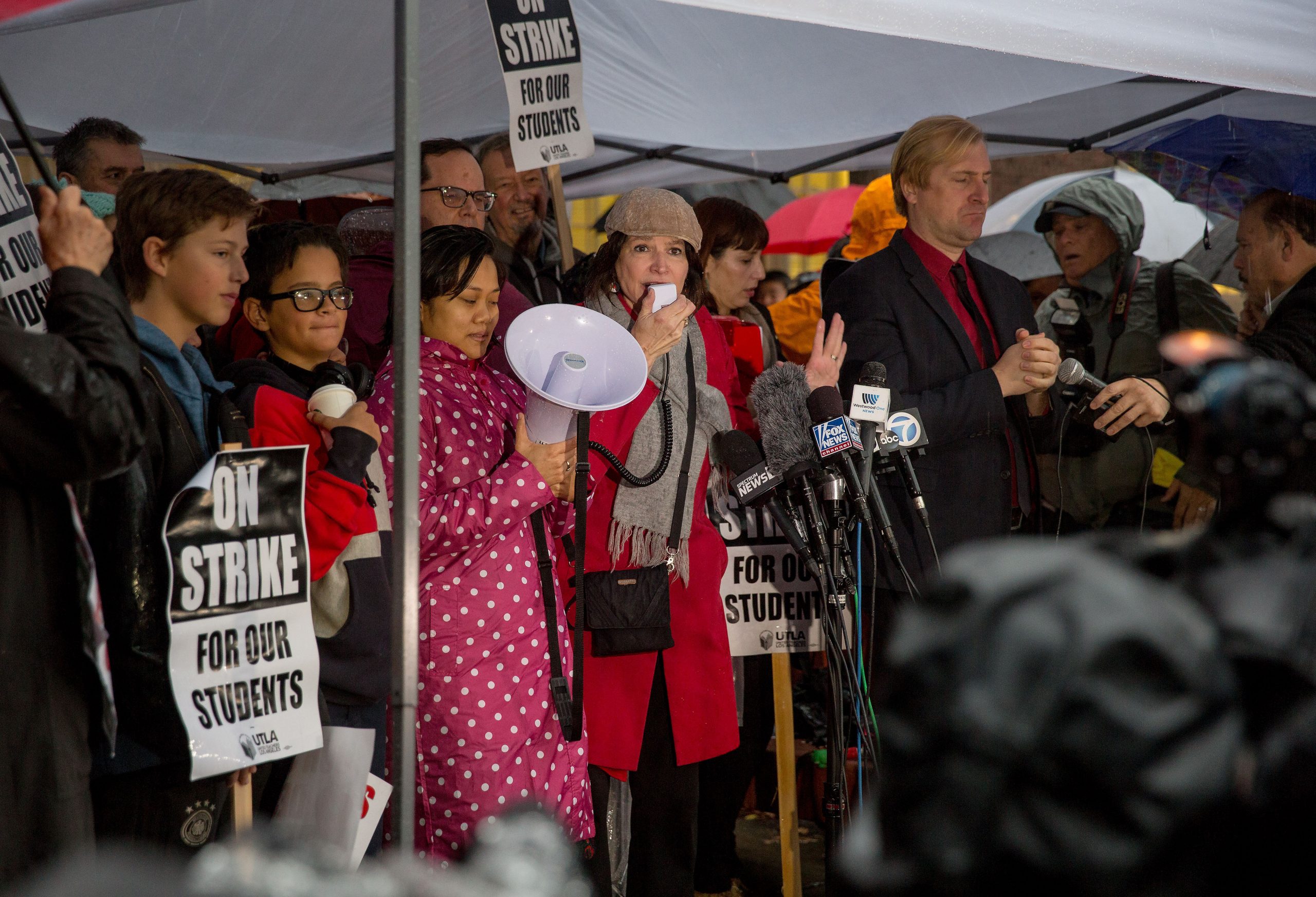
The percentage of the overall US workforce belonging to unions has risen for the first time in more than a decade in the wake of Covid-19. Data on union membership, released today by the US Bureau of Labor Statistics, shows that 10.8 per cent of the workforce were members of a union in 2020, up from 10.3 per cent in 2019.
Yet the rise has been caused not by an increase in the total number of unionised staff, but rather by high job losses among non-unionised staff and vulnerable part-time workers during the pandemic. Union membership had a decrease, in absolute numbers, of 2.2 per cent in 2020. The decline in total employment was 9.6 million – or 6.7 per cent of the workforce (almost twice the number of people in 2009 after the banking crash).
The new data is not all bad, however: those remaining members take up a proportionately larger part of the remaining workforce, representing the first percentage increase in the proportion of unionised workers since 2008, when membership rose from 12.1 per cent of the workforce to 12.4 per cent.
The news also comes as the new US president, Joe Biden, reportedly pledges to be “the most pro-union president you’ve ever seen”. Union bosses have predicted a “renaissance” of membership in the wake of a Democratic administration and newfound public support for struggling low-paid workers.
One of the likely reasons for the increase in the unionised percentage of the overall workforce is that many industries and professions with stronger existing rates of unionisation suffered less from the pandemic than those with low rates. Those working in accommodation, the arts and food services were among the worst affected, and all have unionisation rates at far below the national average.
Workers in the public sector also remain far more likely to be unionised than those in the private sector, with 34.8 per cent of public sector employees now unionised, up from 33.6 per cent, and private sector unionisation up 0.1 per cent to 6.3 per cent. More public sector employees have held on to their jobs over the past year – with only a 5 per cent decline.
“There’s no other union in North America that is so intrinsically involved in the global supply chain,” he says.
Farmer believes that for those members who have faced potential layoffs owing to the pandemic – such as school bus drivers – being in a union has enabled them to negotiate with their employee, potentially securing paid furlough.
In contrast, non-unionised workers can “just show up the next day and boom, you’re out on the street”, adds Kara Deniz, the Teamsters’ press secretary. “Not to say that layoffs and furloughs don’t happen when you’re in a union, but there’s a lot more reassurance around what to expect,” she adds.
[See also: The US’s week of strikes]
The occupations that saw the greatest growth in union membership in 2020 were transport and material moving, healthcare support, protective services and education.
In 2009, there was a decrease in the number of full-time workers and an increase in part-time workers, as the US reeled from the damage of the financial crash. The same thing hasn’t been seen this time, with the number of part-time workers decreasing by almost 10 per cent, while full-time workers decreased by just over 6 per cent, probably because of Covid-19’s impact on the leisure and hospitality sector.
This, says Farmer, helps demonstrate how current labour laws simply aren’t fit for purpose in an era of multiple part-time jobs, gig work and independent contractors. “Hopefully one of the things that’s going to be on the agenda is a whole new look at labour law, because we’re operating under a system that is just completely antiquated,” he says. “The system has in no way even begun to catch up with the changes in the workplace. We’re operating as if this is the 1960s or something.”
For Farmer, the US is on the edge of a reckoning in the world of work – one he thinks may lead to an increase in union membership and a rise in the power of labor unions across the US.
Biden is seen as a major ally in the White House, with the president of the AFL-CIO (American Federation of Labour and Congress of Industrial Organizations), Richard Trumka, calling his inauguration a “once-in-a-generation opportunity” for workers’ rights.
Furthermore, in the past year there has been a groundswell of public support for essential workers, which Farmer believes will outlast the pandemic. “It [Covid-19] raises a lot of questions,” he says. “If we’re saying that these workers are essential to our wellbeing and our economy, why are we treating them like shit?
“Why aren’t we paying them decent liveable wages, why aren’t we concerned about their health and safety during the greatest health and safety threat in our lifetime?”
And perhaps most importantly, Farmer adds, there are also the workers themselves, who after a year of job insecurity, stress and fears for their health, he hopes will place renewed energy behind the collective demand for dignity and respect in the workplace.
“I think we’re in for a renaissance – and that's more than rhetoric,” he says.





